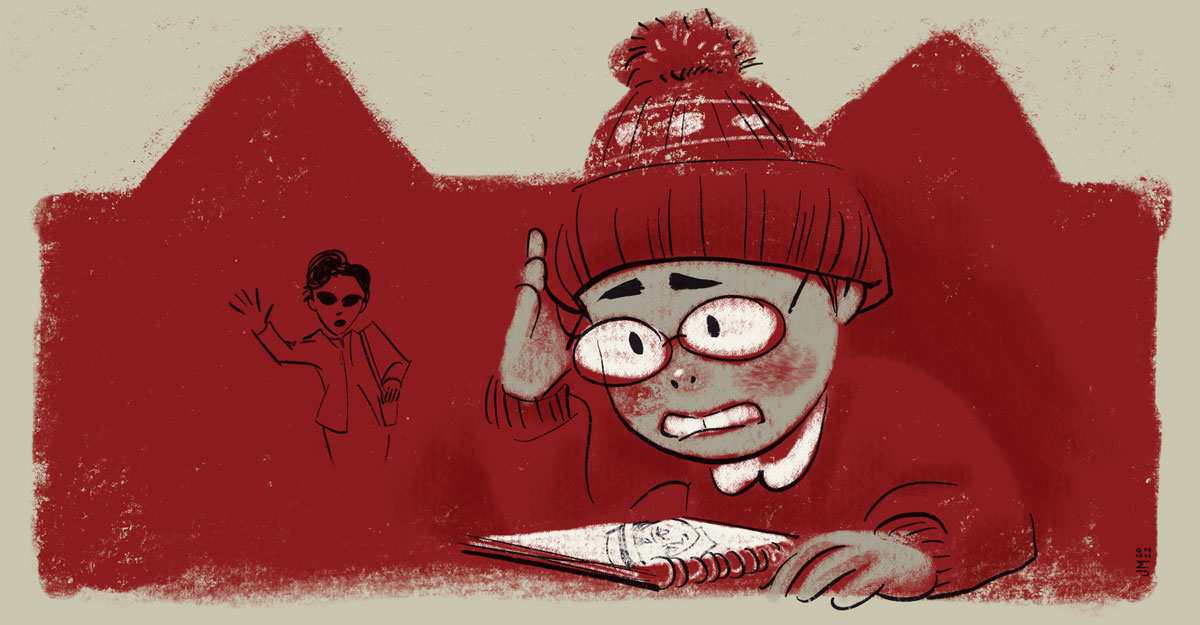Talk To Your Young Children About Puberty Without Turning Red
When should you talk to kids about puberty? Experts say early and often. Pixar’s latest movie could provide a great start.
In Pixar’s Turning Red, a spunky 13-year-old girl named Meilin “Mei” Lee’s body and emotions begin responding to puberty with hilarious, and sometimes ferocious, results (spoiler alert: when she loses control, she turns into a giant red panda). Like all Pixar movies, it’s beautifully animated and features relatable characters that engage people of all ages, including young children. However, unlike other “kids” films, Turning Red broaches topics related to puberty, such as menstruation, mood swings, and sexual desire.

In an interview with The New York Times, director Domee Shi said, “I wanted Mei to go through a magical puberty transformation, and I couldn’t get the image of a red panda out of my head because it’s so cute and funny… There’s something about the color, too. Red represents your period. It represents being angry, being embarrassed or being very lustful for someone.” These are characteristics we rarely see depicted in teenage girls, even though, as Shi said, “We are just as awkward and sweaty and lusty and excited as any boy.”
At first glance, these topics may seem inappropriate for young children. Some parents have expressed dismay on social media, writing that their children don’t know about puberty yet and shouldn’t see depictions of it in a Pixar movie. However, many experts agree that talking to young children about bodies and puberty encourages healthy development and fosters open communication between parents and children.
“Let’s take the shame out of it,” said Cara Natterson, M.D., author of the bestselling Care and Keeping of You book series and co-host of The Puberty Podcast, during an interview for Parents in which she talked about some reactions to the movie. “I was pretty bummed out about the comments that suggested you needed a trigger warning about puberty. For any parents who are curious: 100% of your children are going to go through puberty. Learning about it, teaching them about it, having those necessary conversations is critical.”
When we talk about puberty, menstruation and body changes, we destigmatize them and help children feel proud of their bodies. Starting these conversations young builds scaffolding for future conversations about “awkward” topics. Engaging in this type of communication early helps your child to see you as a trusted authority, someone they might actually feel comfortable talking to about more complex and personal issues down the line.
Moreover, the onset of puberty can happen as early as age 8, which makes it even more necessary to start these conversations young to help your child prepare for these changes.
Given the importance of educating children about puberty before it happens, the Mayo Clinic and other medical authorities recommend that parents:
- Start talking early
- This can be as simple as naming your toddler’s body parts in the bathtub or during potty training, using anatomical words like penis, vagina, nipples, etc.
- As your child gets older, they may ask about pregnancy, babies, your body and other topics related to reproduction. Stay calm and remember that their curiosity is normal. Answer their questions using simple and direct language and remember that you don’t have to provide a lot of details.
- Keep the conversation going in dribs and drabs, rather than one big talk
- Look for opportunities in your daily life to talk about bodies, puberty and other topics related to sexual development. You might see an inappropriate ad or an unsettling depiction of gender roles on TV. Your 5-year-old might discover your box of tampons in the bathroom or your second grader might tell you a story about something that happened on the playground. Use these moments to start conversations with your child. Ask them what they’ve heard and what questions they have.
- Answer questions honestly and openly
- You are building trust with your child and setting the tone for how they see themselves and others. If you don’t know the answer, it’s okay to take a break and get back to them. If a conversation doesn’t go well, it’s okay to try again another time. The main thing is to foster confidence that they can ask you questions without shame.
- Don’t limit period talk to girls.
- Children of all genders benefit from learning reliable information about menstruation, including boys and transgender and gender nonconforming children. Involving all children in these conversations can reduce the stigma and anxiety related to normal body functions and help kids become better allies to people who menstruate.
It can feel daunting to start conversations like these, but it does get easier with practice. And the results – a foundation for open and honest communication with your way-too-fast-growing children – are so worth it. So, if you’re looking for a lighthearted way to broach puberty talk with your children, Turning Red might be just what the experts ordered.
If you need parenting help, you may benefit from talking to a professional. Talk to your primary care doctor about options or contact the caring professionals at Athena Care today.

Rachel Swan, MS
Editor
Rachel has a Masters of Science in Clinical Psychology from Vanderbilt University, where she spent 16 years as a Research Analyst in the Psychology and Human Development Department.


